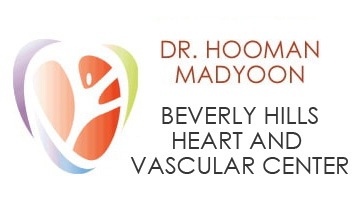Heart health is critical to your overall well-being. Your heart pumps oxygen-rich blood throughout your body to help it effectively run. Maintaining your heart health is key when it comes to reducing the risk of cardiovascular disease. Common heart health issues include heart attacks, hypertension, and strokes. There are several factors that can impact your heart health, including stress, exercise, smoking, diet, and alcohol use. Below, you will find a deeper dive into the connection between alcohol and heart health.
Alcohol and Heart Health
Alcohol consumption can impact your overall health. This includes your heart health, as there is significant research that indicates the relationship between alcohol use and your cardiovascular health. There is a unique difference between those who have a moderate intake of alcohol and those with an excessive amount. Consider the differences between the two below to evaluate the impact of your alcohol consumption.
Moderate Alcohol Intake
Moderate alcohol consumption differs between men and women. For women, moderate alcohol consumption includes up to one drink per day. For men, it includes up to two drinks per day. Some research has indicated that moderate alcohol consumption can lower your risk of dying from heart disease. This is based on evidence indicating that moderate alcohol consumption raises your HDL cholesterol. HDL cholesterol is known as “good” cholesterol. Researchers have also indicated that red wine can protect your heart due to its antioxidant content.
Despite the research, there are some flaws that are left unmentioned. For example, those who drink red wine are often from higher-income categories. This means that despite their moderate alcohol consumption, they may have other factors that keep them in good health. This includes the means and access to healthier foods and less stressful lifestyles. Additionally, the red wine theory regarding HDL cholesterol may be correct. However, there are several other ways to raise your HDL cholesterol without drinking alcohol. This includes exercise and certain types of produce.
Excessive Alcohol Intake
Excessive intake is defined as drinking more than the recommended amount per day. For women, excessive intake is more than three drinks per day or more than seven drinks per week. For men, it is defined as more than four drinks per day and more than fourteen drinks per week. The research is very clear that excessive alcohol intake has a negative impact on your heart health. In fact, it can increase your risk of cardiovascular disease and lead to hypertension. Hypertension is a significant factor that can lead to heart disease, stroke, and other heart-related complications.
Excessive alcohol intake can lead to several other heart-related conditions, such as the development of cardiomyopathy and coronary artery disease. Cardiomyopathy is characterized by weakened heart muscles, which can cause arrhythmias and abnormal heart rhythms. In severe cases, this can result in cardiac arrest and heart failure if left unaddressed. Coronary artery disease is a condition characterized by the narrowing or blockage of the coronary arteries. This can lead to reduced blood flow to the heart, which can increase the risk of heart attack.
Cardiovascular Specialist
If you experience any symptoms related to your heart health, it’s important to consult with a medical professional right away. Common symptoms that indicate heart-related issues include chest pain or discomfort, shortness of breath, palpitations, dizziness, fainting, fatigue, swelling in your legs or abdomen, and unexplained weight gain or loss. A cardiovascular specialist can address these symptoms and provide you with a treatment plan based on your unique needs. The team at Beverly Hills Heart and Vascular Center is experienced and skilled in cardiovascular health. Contact their team today to schedule an appointment!

